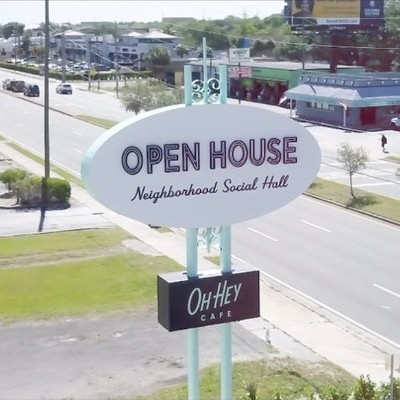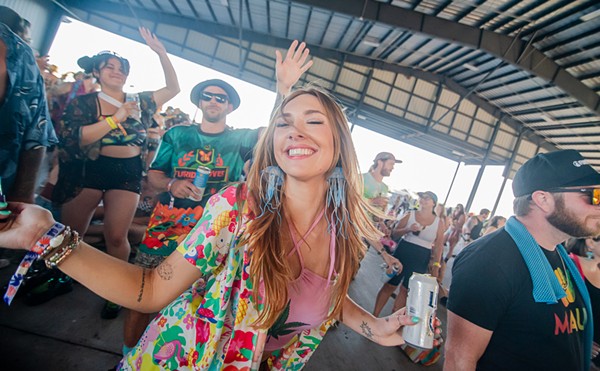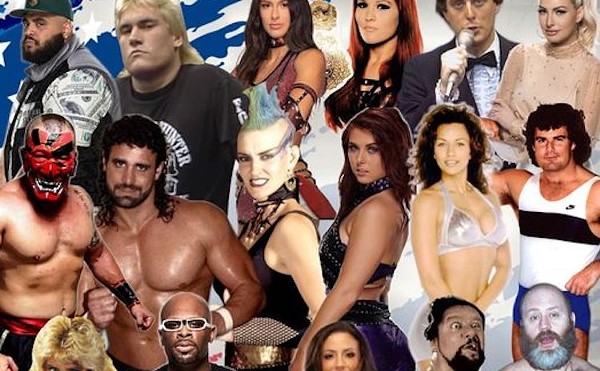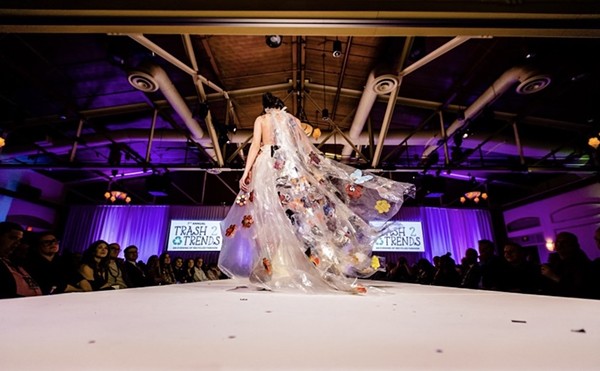When West Virginia's Jesco White agreed to be profiled for an episode of the PBS-TV series "Different Drummer" in 1991, he expected a simple, music-video document of the tap-dancing skills he then hoped to parlay into fame and fortune. The program, broadcast under the title "Dancing Outlaw," did indeed show its hero kicking up his heels at various garbage-strewn locations in his Boone County neighborhood. But it showed a lot more.
In the 30-minute biography, director Jacob Young captured a troubled soul's search for self-realization within a vanishing hillbilly culture. The "dancing outlaw," viewers learned, was beset by a multiple-personality disorder exacerbated by years of alcohol abuse and lighter-fluid inhalation. Then there was the manifest tension between White and his wife, Norma Jean, an enigmatic, beach-ball-shaped woman who accused his family of trying to sabotage their already volatile marriage. (White's mother was quick to lob the blame right back at Norma Jean.)
The low-class psychodrama was lent a bizarre edge by White's habit of immersing himself in Elvis memorabilia and dressing up as the King while singing along with records. But it was difficult to begrudge him his pacifiers after hearing the awful story of how he had watched his beloved father -- the fondly remembered D. Ray White, himself an Appalachian hoofer -- shot dead in a meaningless dispute.
Touching, hilarious and frightening, the documentary was widely circulated on VHS, winning White a devoted cult following. The local outpost of that fan club may receive a rare treat April 4 at the Back Booth, where White is scheduled to dance to the music of the local Riverbottom Nightmare Band and to tell homespun yarns -- which are no less enjoyable for their occasional descent into a cognitive morass. (On meeting his spouse: "I never knowed Norma before in my life, until, you know, I met her.")
If there's such a stratus as "below underground," White's Orlando visit deserves the label. Its details were hashed out between White and Back Booth co-owner Ryan Marshall without the involvement of a manager or agent. White's sister Mamie is driving him down from Boone County for the gig, an oasis of activity in the dormant career of a man who currently refers to himself as either "retired" or "in hiding."
The reasons for that semiseclusion have their roots in "Dancing Outlaw"'s dissemination on video. Among those who saw and loved the tape were Roseanne and Tom Arnold, who invited Jesco to appear in an episode of their ABC-TV series, "Roseanne." His trip to Los Angeles was chronicled in 1994's "Dancing Outlaw II: Jesco Goes to Hollywood," a fish-out-of-water story that saw White bringing "Boone County rhythm" to Hollywood.
The postscript to the mostly upbeat sequel, however, hinted at adversity to come: Upon White's return to West Virginia, Norma Jean had him evicted from their home.
Out of the glare of the spotlight, White says, he found himself exploited and victimized. After two documentaries, one network-TV spot and a cameo in Beck's "Loser" video, his financial windfall was limited to $1,000 and a riding lawn mower. Worse, his collection of Presleyana was destroyed and his trailer home "smashed up" by neighbors he believes were jealous of his so-called success. Since then, he has danced in public only once or twice.
Word of White's doings is now limited to Internet postings by intrepid fans who undertake pilgrimages to his out-of-the-way digs. It was one such traveler who put him in touch with Marshall. Perhaps "in touch" is the wrong term: The erratic White, Marshall says, has a habit of not answering his phone, and some details of his Orlando trip were yet to be ironed out at press time. But Marshall is betting that the promise of a direct, cash payment for his services will seal White's attendance.
It's a fair deal for the mountain man. But what's in it for us? One can easily worry that White's popularity is based on camp curiosity -- the ugly impulse to have some cheap laughs at one's perceived social inferiors. Yet there is also a purer, sweeter side to the phenomenon.
"There's a lot of sincerity and honesty in him," Marshall praises. "He's just a real down-to-Earth, sensitive person."
While the Dancing Outlaw packs for his Florida jaunt -- God willing -- he isn't far from Norma Jean's side. She is dying of diabetes, and though they remain separated, White visits her two or three times per week.















